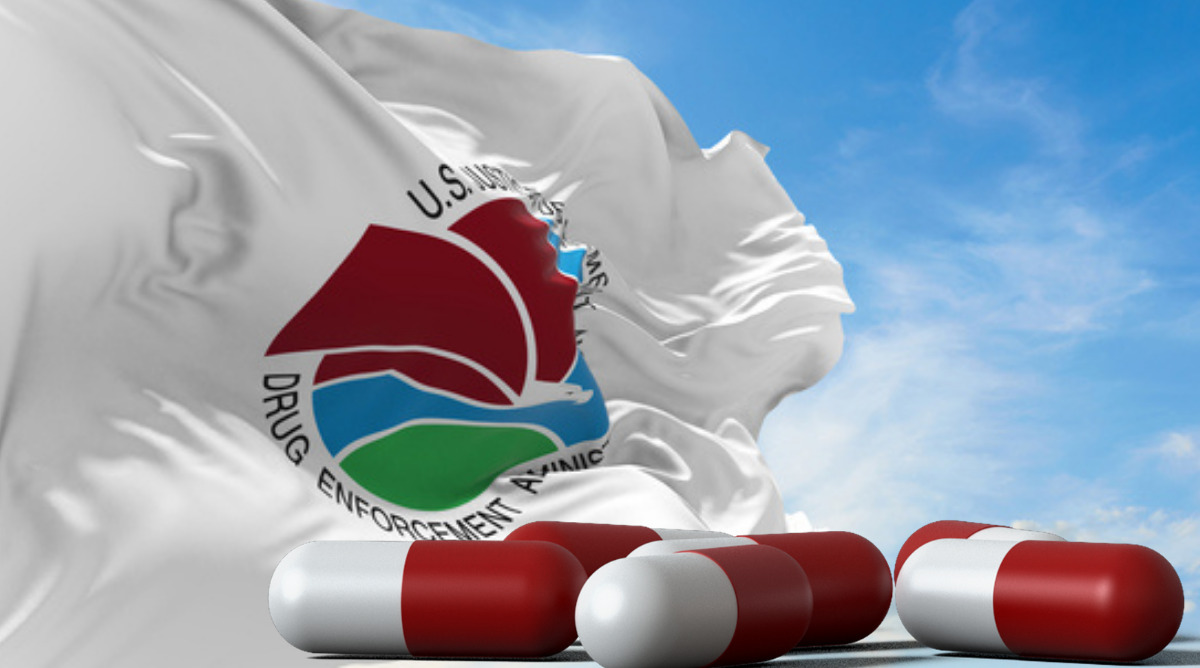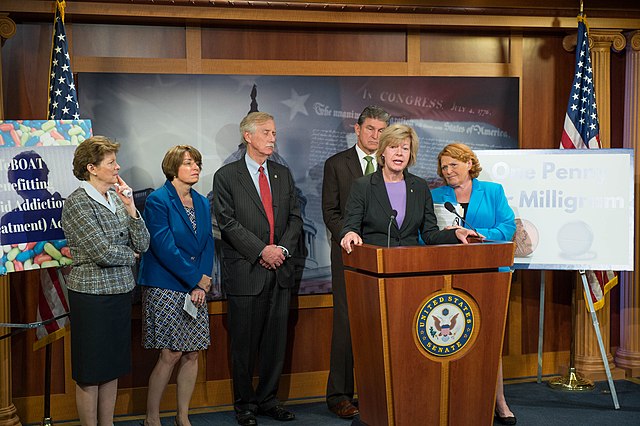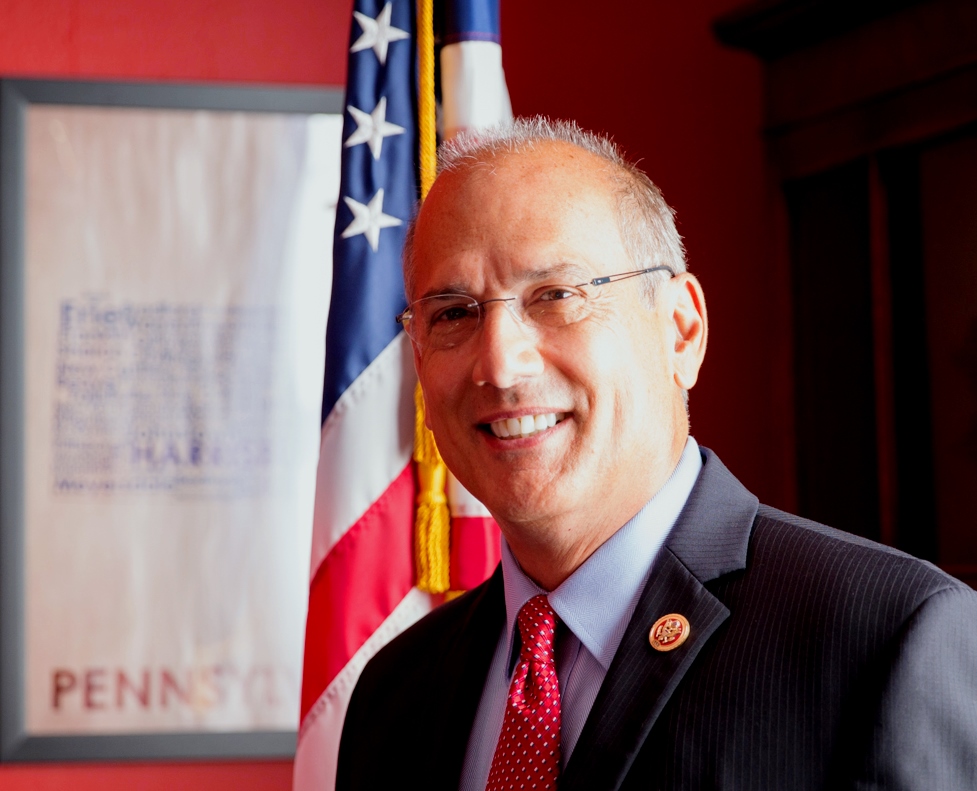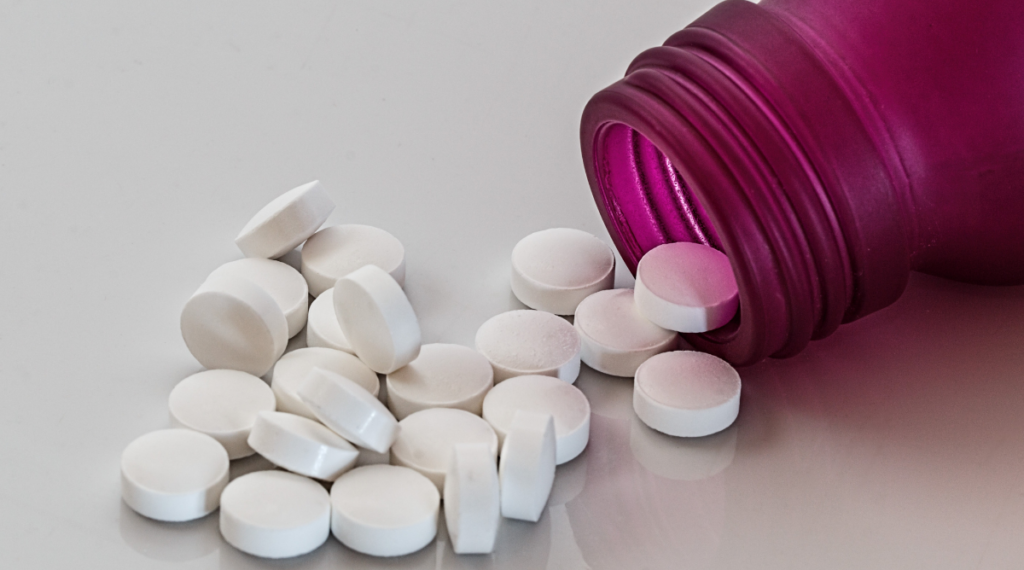
The U.S. Drug Enforcement Administration (DEA) has asked for more psilocybin and cannabis to be provided for research. Not a little bit more; a ton more. According to Marijuana Moment, an increase of 6,300%. As soon as possible.
Now, you might be wondering why the DEA is calling for such a drastic increase in the amount of cannabis and psilocybin available for research. Especially since the Agency had already increased the requisition amount of a number of different types of drugs in 2021.
Some people have taken it as a positive sign that the DEA is looking at the federal legalization of psychedelic drugs and cannabis. That seems reasonable if they are putting in the effort to get more of that ‘evidence-based research’ that both the DEA and the FDA have asked for when it comes to cannabis.
But could it also be a sign that federal legalization is never going to happen? Despite growing support and proposed legislation in the House of Representatives and Senate, is the DEA creating another plan? An alternative when federal legalization of cannabis falls through?
And more importantly, is this a sign that the federal government may be planning to ban raw psychedelic drugs like psilocybin and off-label use of ketamine? And strengthening the ban and federal penalties on other drugs like Ayahuasca?
Some big pieces are being moved to prepare for something on the chessboard of drug policy and federal legalization. But it might not be the good news that everyone is expecting. Including businesses that rely on the federal legalization of Schedule 1 drugs.
In 2020, the Drug Enforcement Agency ordered about 500,000 grams of marijuana to be produced. For 2021, the DEA asked for 2 million grams of cannabis for research. That is just over 4,000 pounds.
But it wasn’t just cannabis that the DEA pumped up the quota on. The Drug Enforcement Agency requested an increase from 50 grams of psilocybin to 1,500 grams. And indicated that it wants to produce 1,000 grams of psilocin for research. Proposals were received in October 2021 from cultivators.
“Since the beginning of this Administration, there has been a 58 percent increase in the number of active researchers registered with DEA to conduct research with marijuana, marijuana extracts, and marijuana derivatives – from 377 in January 2017 to 595 in March 2020. At present, more researchers are registered to conduct research on marijuana, marijuana extracts, and marijuana derivatives than on any other schedule I substance in the United States. More than 70 percent of DEA’s total schedule I research registrant population is registered to conduct research on these substances. To accommodate this growth in research, DEA has increased the annual production quota for marijuana by 575 percent – from 472 kilograms in 2017 to 3,200 kilograms in 2020.”
Source Web 2021: dea.gov
The plan is to get more raw drugs to do more research. Some people think that means federal legalization is just around the corner. But that might not be the case. It might be to wage the final battle between the DEA and parties that want to remove cannabis from Schedule 1 of the Controlled Substances Act (CSA).

Did you know that the U.S. federal government has a drug supplier? It’s nothing nefarious, because the University of Mississippi, Oxford has provided cannabis for federal research for fifty-three years.
Since 1968, The National Institute on Drug Abuse (NIDA) has had a contractual arrangement with the University of Mississippi. Any government-sanctioned research of cannabis can only be done with UM cannabis.
The cannabis cultivated at the University of Mississippi for federal research was low-THC. Weak and poor quality weed was all that was provided for research. Was that deliberate back in the day? An attempt to stifle research. Maybe, if you believe in the anti-legalization conspiracy theories.
The University of Northern Colorado researchers did a study of the genetics of the NIDA research cannabis. The sample study revealed that the ‘marijuana’ being grown by UM for federal research studies had more in common with hemp. In every possible way. And was nothing remotely like the cannabis currently being sold in dispensaries.
The pot thickens. How could evidence-based research be acquired if the potency and the quality of the cannabis bear no semblance to commercial weed? The UM cannabis also had mold. Which could mess up any study.
The research results would be inaccurate. Easy to debunk. You can see why some people buy into the suggestion of a conspiracy. And it created such a backlash that the DEA announced it would accept over thirty new applications for providers. Diversifying from the University of Mississippi to other cultivators.
Psilocybin is a naturally occurring chemical that is found in specific kinds of mushrooms. The mushrooms only grow in select regions of South America, Mexico, and some areas of the United States.
Magic mushrooms have been a black market and illegal recreational drug since 1957. Surprised that your parents or grandparents may have been talking about (or sneaking) shrooms? Don’t be. All it took was one article in LIFE Magazine from R. Gordon Wasson, who discovered them on a trip to Mexico.
It was actually Wasson that sent the psilocybin mushrooms to a chemist in Sweden. The same chemist that was responsible for discovering LSD (Albert Hofmann). The duo formulated and compounded psilocybin into 2mg pills and started distributing them for research.
For the next twenty years, clinical trials were conducted on patients. Specifically, psychiatrists were interested in psychedelics for the treatment of severe mental health disorders.
The clinical trials of psilocybin showed promise for a variety of conditions, including:
With the DEA calling for a higher volume of psilocybin, will it be legalized soon? Are they considering it? Nope. But the Drug Enforcement Administration and other government bodies are accumulating research for an alternative. They are providing that data to pharmaceutical companies.
The DEA seems to want the investigations to lead to prescription medications promoting wellness and doing what natural or unrefined Schedule 1 drug can do. And have Big Pharma compound psilocybin into a variety of prescription drugs instead.
It looks like the Drug Enforcement Administration isn’t about to end the “war on drugs” without a fight. Or a contingency plan. Think about it. If everything that psychedelic medications and cannabis can do for you was provided in a pill or liquid solution prescribed by your doctor? Federal legalization of Schedule 1 drugs would be pointless, right?
Let’s leave that right there for a moment. Because petitions heard by the Supreme Court to reschedule cannabis have fallen on deaf ears. They have basically been blocked. So, is the DEA acquiring more data to prepare for legalization? Or is there another path they are preparing for?
There is some contentious history between the Drug Enforcement Administration and the U.S. pharmaceutical industry. Read: “The Drug Industry’s Triumph Over the DEA,” by Scott Higham and Lenny Bernstein, for The Washington Post.
But that huge battle where the DEA was legislatively handcuffed seems to be forgotten by the agency. As Big Pharma tunes into psychedelics.
Remember when the opioid epidemic was still disputed and debunked? Unregulated and poorly controlled prescriptions for Americans were being written at an alarming rate. The peak year for Big Pharma to deny the threat of opioid addiction and overdose was 2016. That’s when Congress sided with Big Pharma.
No joke. In 2016, there was an unexpected and highly publicized blow to the Drug Enforcement Administration. You see, there were a handful of members of Congress who aligned with America’s largest pharmaceutical companies. And they fought early regulation of opioids that could have saved tens of thousands of lives.
The role that certain members of Congress played in tying the hands of the DEA was exposed by an in-depth investigation by “60 Minutes” and The Washington Post. By 2016, the opioid epidemic had already claimed more than 200,000 lives in the United States. That same year, overdose deaths from prescription opioids spiked tragically, as well.
And the Drug Enforcement Administration was ready to double down and stop the flood of prescription opioids. The DEA was trying to implement stricter controls. But instead of being supported by Congress, Big Pharma supporters in the House and the Senate had other ideas.

The Big Pharma-backed Congressional leaders nixed legislation that would have implemented strict controls on opioid prescriptions as early as 2008. That allowed prescription opioids to continue being overprescribed for years before new legislation slowed it down.
The plan worked, and the campaign to slow the aggressive enforcement of new anti-opioid laws by the DEA was hobbled. And so were laws that would have significantly reduced the number of opioids that trickled to the black market. A criminal supply chain built by corrupt medical professionals, including pharmacists and doctors.
The activity that tied the hands of the DEA was predominantly supported by Representative Tom Marino, from Pennsylvania. Marino was recently President Donald Trump’s nominee for ‘drug czar’ or The Office of National Drug Control Policy (ONDCP). The DEA warned Tom Marino that a delay in restrictions would worsen the opioid crisis. And Marino’s hand in legally cuffing the DEA preventative response caused Tom Marino to decline the appointment as the head of the ONDCP.
That was thanks in great part to the exposed reporting of The Washington Post and “60 Minutes”. And also to the testimony of a whistleblower Joe Rannazzisi. A former DEA agent testified that Congress and pharmaceutical lobbyists provided a significant obstacle in 2018.
Co-sponsors of the legislation that repealed anti-opioid laws in 2016 included other leaders like Senator Claire McCaskill and Senator Margaret Wood Hassan.

In a surprising “let bygones be bygones,” it appears that the DEA is working in conjunction with the U.S. pharmaceutical industry. Both parties have a vested and personal stake in blocking the federal legalization of cannabis and psychedelic drugs.
The DEA’s motivation goes back (way back) to the Anslinger era. The agency is tenacious and determined not to see any Schedule 1 drugs legalized in the United States. It’s generational as far as the culture of the agency and personal.
Pharmaceutical companies naturally do not want to see alternative medicines legalized. Because that represents a significant dent in prescription drug sales and revenues. The first clinical studies that showed opioid use dropped rapidly after state legalization of cannabis were published in 2018.
Coincidence? You decide. It was that same year that Big Pharma motivated several members of Congress to stop restrictive legislation. Laws that would have taken control over opioid prescriptions. And laws that may have saved tens of thousands of lives. The studies were both published in JAMA that year.
One clinical study also revealed that prescription opioid medications could also do extensive damage to the digestive tract. Did you know that 70% of your immune system functioning happens in the G.I. tract? Opioids may have a detrimental effect on immunity. Especially if they are used for a long time. And can increase (not reduce) nerve sensitivity and pain.
While it was possible to hide the villain status of opioids for decades, the use of prescription opiates is declining rapidly. There have been so many studies, and the media has been instrumental in helping to get the message out there. Opioids are bad for your health. And should only be taken if there is no alternative.
Subsequently, Big Pharma may be feeling a little panic. Desperate to replace the lucrative product that made them billions of dollars (at a terrible human cost). With a definite shift in negative perceptions of their golden product (opioids), something new has to replace it. And that might be to compound all the benefits of cannabis and psilocybin into prescription pills.
Patients want to use cannabis or psychedelic medications like ketamine or psilocybin for symptom relief. But with the exception of ketamine (which is legal for off-label use), federal legalization seems far on the horizon. If at all possible, given lack of support in Congress for federal legalization.
There is a new and increased supply of cannabis and psychedelic medications sanctioned by the DEA for research. And drug companies are waiting to provide a solution. Tablets or capsules? Prescription oral formulations of cannabinoids or psychedelics, instead of legalizing the raw natural drugs.
The enemy of your enemy is your friend. It would be a mutual victory for Big Pharma and the DEA. Neither group wants to see federal legalization happen. And both have committed decades and endless resources to stop it from happening.
Featured Image: (Canva)
No Information on MarijuanaDoctors.Com should be used to diagnose, treat, prevent or cure any disease or condition. You can view our Full Disclaimer here.